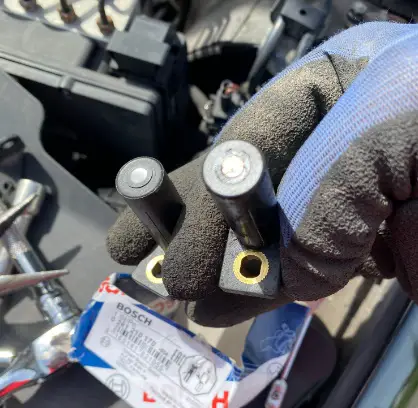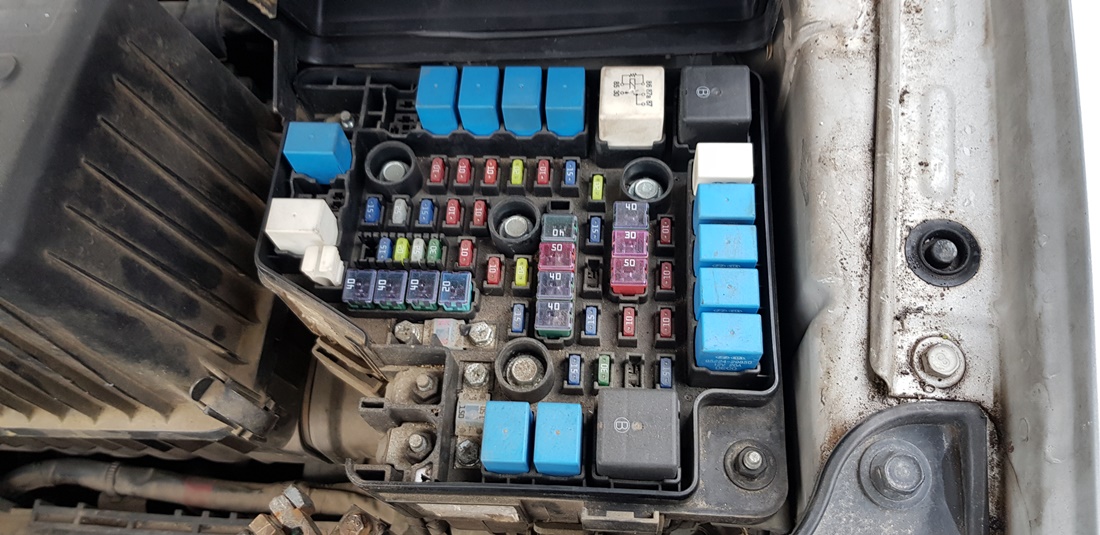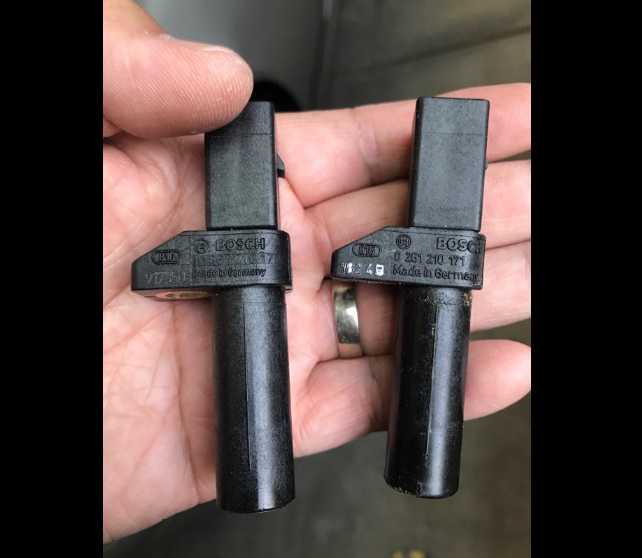If you’re like most people, you probably don’t think about your car’s fuel until there’s a problem. One common issue that many drivers face is the degradation of fuel quality, which can lead to all sorts of problems down the road.
In this blog post, we’ll discuss everything you need to know about fuel stabilizers and how to choose the right one for your vehicle.
- Key Takeaway
- What Is a Fuel Stabilizer
- When Should You Use a Fuel Stabilizer?
- The Benefits of Fuel Stabilizers
- How to Choose the Right Fuel Stabilizer For Your Needs
- Is a Fuel Stabilizer Necessary?
- 10 Best Fuel Stabilizers For Your Car
- 1. Lucas 10013 Fuel Treatment
- 2. Star Tron Enzyme Fuel Treatment
- 3. STA-BIL 360° Performance Fuel Stabilizer
- 4. Sea Foam SF-16 Motor Treatment
- 5. Berryman B-12 Chemtool Fuel Treatment
- 6. PRI-G Fuel Stabilizer
- 7. Gold Eagle STA-BIL Fuel Stabilizer
- 8. Chevron Techron Concentrate Plus Fuel System Cleaner
- 9. ExxonMobil Elite Fuelsaver Gasoline Additive
- 10. Amsoil Dominator Octane Booster & Stabilizer
- FAQs
- Q: How does a fuel stabilizer work?
- Q: Can fuel stabilizers be used in both gasoline and diesel?
- Q: How much fuel stabilizer should I use?
- Q: Can a fuel stabilizer revive old or stale fuel?
- Q: How long does fuel stabilizer last in the fuel?
- Q: Can fuel stabilizers be used in marine applications?
- Q: Are there any precautions or storage requirements for fuel stabilizers?
- Q: Can fuel stabilizers improve fuel efficiency?
- In Conclusion
Key Takeaway
- A fuel stabilizer is a chemical additive that preserves the quality and potency of stored gasoline or other fuels by preventing oxidation and degradation over extended periods of non-use.
- You should use a fuel stabilizer when storing vehicles or equipment for extended periods of inactivity, to prevent fuel degradation and ensure smooth engine start-up when they are used again.
- Fuel stabilizers preserve the quality of stored fuel, prevent engine damage from gum, varnish and rust, improve start-up performance, provide a long-term storage solution, save on maintenance costs, and offer versatility for use with various types of fuel.
What Is a Fuel Stabilizer

Fuel stabilizers are additives that help to keep fuel fresh for longer periods of time. They work by absorbing water and preventing the formation of gums and other deposits that can clog fuel lines and damage engines.
Fuel stabilizers are particularly important in areas where temperatures fluctuate, as this can cause condensation to form in fuel tanks. Adding a fuel stabilizer to your tank before storing it for extended periods can help to keep your engine running smoothly.
There are a few things to keep in mind when using fuel stabilizers. First, be sure to read the instructions on the bottle carefully. Some products must be added directly to the gas tank, while others can be mixed with the fuel before adding it to the tank.
Second, remember that fuel stabilizers do not replace the need for proper maintenance on your engine. Be sure to follow all of the manufacturer’s recommendations for care and storage of your engine, even if you are using a fuel stabilizer.
Fuel stabilizers can be a great way to keep your engine running smoothly. Just be sure to read the instructions carefully and follow all recommended maintenance procedures. Your engine will thank you for it!
When Should You Use a Fuel Stabilizer?

Gasoline can start to break down and form varnishes and gums within just a few weeks, so it’s important to use a fuel stabilizer to keep your fuel system running smoothly. So, when exactly should you use a fuel stabilizer?
1. If you live in an area with extreme temperatures

If you live in an area with extreme temperatures, then you should definitely be using a fuel stabilizer. Hot or cold weather can cause the fuel to break down and clog up the engine. This is why it is important to use a fuel stabilizer.
The rate of chemical reactions generally increases as temperature rises. This means that, in theory, warmer temperatures should cause fuel to break down faster.
However, there are other factors that can affect the breakdown of fuel, such as the type of fuel and the presence of oxygen. In general, though, higher temperatures will cause fuel to degrade more quickly.
There are a few ways to measure the rate of fuel degradation. One is to look at the change in viscosity, or thickness, of the fuel over time. As fuels break down, they usually become thinner and less viscous.
2. If you are going to store your vehicle for over a month

Fuel degrades over time and will eventually turn into a gel-like substance that can clog your fuel lines and prevent your engine from running properly. While it is true that fuel will degrade over time, there are ways to slow down the process. Adding a fuel stabilizer to your gas tank can help keep the fuel fresh for longer periods of time.
The degradation of fuel is a real problem for car owners. If you have ever had to deal with a clogged fuel filter, then you know how frustrating it can be.
And if you know you won’t be driving your car for an extended period of time, draining the gas tank completely is always a good idea. However, if you are not able to drain your gas tank, then using a fuel stabilizer is a must.
If you’re going to be storing your vehicle for more than 30 days, it’s important to take some extra steps to make sure everything stays in good shape. In addition to using a fuel stabilizer, you should also:
- Check the fluids and top them off if necessary
- Clean the interior and exterior of the vehicle
- Cover the vehicle to protect it from the elements
- Disconnect the battery or use a battery tender to keep it from draining
3. The type of fuel you are using

The type of fuel that degrades the fastest is gasoline. Gasoline breaks down quickly when it is exposed to air and light. This is why you should always store gasoline in a dark, cool place. Ethanol-blended fuels also degrade faster than traditional gasoline.
Ethanol-blended fuels contain up to 30% ethanol, which is a corrosive substance. Ethanol can damage the rubber seals and gaskets in your car’s fuel system. Over time, this can lead to leaks and engine problems. If you live in an area with high temperatures, you should avoid using ethanol-blended fuels.
Fuel stabilizers can help to slow down the degradation of ethanol-blended fuels.
However, it’s important to understand that fuel stabilizers are not a “cure-all” for ethanol fuel problems. In fact, there are several measures that should be taken in order to ensure that your ethanol-blended fuel lasts as long as possible.
Here are a few tips for prolonging the life of your ethanol-blended fuel:
- Store your fuel in a cool, dark place. Extreme temperatures and sunlight can accelerate the degradation process.
- Use a quality gas cap that seals tightly. This will help to keep oxygen out, which can also contribute to degradation.
- Add a fuel stabilizer to your tank before storing your vehicle for an extended period of time. This will help to keep the fuel fresh and prevent it from breaking down.
The Benefits of Fuel Stabilizers
- Prevents Fuel Deterioration: Fuel stabilizers contain antioxidants that disrupt the chemical reactions that cause fuel to break down, therefore preserving its quality over time.
- Protects Engine Components: By keeping the fuel fresh, stabilizers prevent gum, varnish, and rust from forming in the fuel system, thereby protecting engine components from damage.
- Improves Start-Up Performance: Fuel stabilizers ensure that stored fuel remains at full strength, leading to quicker, smoother starts after periods of inactivity.
- Long-Term Storage Solution: Fuel stabilizers like STA-BIL® Storage can protect the fuel from deteriorating for up to 24 months, eliminating the need to drain fuel prior to storage.
- Cost-Efficient: By preventing fuel degradation and associated engine problems, fuel stabilizers can save costs on repairs and maintenance in the long run.
- Versatility: Fuel stabilizers are effective with all types of gasoline, ethanol blends, and diesel fuel, making them versatile for various engines and machinery.
How to Choose the Right Fuel Stabilizer For Your Needs
If you have a gas-powered lawn mower, boat, or other small engines, you know that storing fuel over the winter can be tricky. To keep your fuel from going bad and ruining your engine, you need to add a fuel stabilizer. But with all the different options on the market, how do you choose the right one for your needs?
Here are a few things to consider when choosing a fuel stabilizer:
- The type of fuel you’re using (gasoline or diesel)
- The amount of fuel you’re storing
- How long you’ll be storing the fuel
With these factors in mind, let’s take a look at some of the most popular fuel stabilizers on the market.
If you have a gasoline-powered engine, the Star Tron Enzyme Fuel Treatment is a great option. It’s designed to keep gas fresh for up to two years, and it works with all types of gasoline, including ethanol-blended fuel.
Another popular choice for gasoline engines is the STA-BIL 360° Protection Fuel Treatments. This formula prevents corrosion and keeps fuel fresh for up to 12 months. It also contains an additive that cleans your engine as you use it.
For diesel engines, the Power Service Diesel Fuels Additive is a good option. It helps remove water from fuel, prevents corrosion, and lubricates injectors and pumps. It also keeps diesel fuel fresh for up to 12 months.
No matter which fuel stabilizer you choose, be sure to follow the instructions on the bottle. This will ensure that your fuel is properly treated and your engine stays in good shape.
Is a Fuel Stabilizer Necessary?
The quick answer is no, a fuel stabilizer isn’t necessary if you are going to drive your vehicle every day. However, if you’re storing your vehicle for an extended period of time, adding a fuel stabilizer to your tank can help extend the life of your engine.
Fuel usually starts to degrade slowly after thirty days. So, if you are spending your full gas tank in less than a month, there is no need to use a fuel stabilizer.
When gasoline sits for too long, it begins to break down and form varnish and sludge on the inside of your engine. This can cause your engine to run less efficiently and eventually fail. A fuel stabilizer prevents this by keeping the gas fresh and preventing it from breaking down.
If you’re planning on storing your motorcycle, car, truck, or boat for more than a few months, we recommend adding a fuel stabilizer to your tank before you do. This will help ensure that your engine is protected and will make starting it up again a lot easier.
10 Best Fuel Stabilizers For Your Car
If you’ve ever had to deal with a car that wouldn’t start because the gas was bad, then you know how important it is to have a good fuel stabilizer. Fuel stabilizers keep your gas from going bad and causing problems with your car. Here are the ten best fuel stabilizers for your car:
1. Lucas 10013 Fuel Treatment

The first fuel stabilizer on our list is the Lucas 10013 Fuel Treatment. This product is designed to keep your gas fresh for up to 24 months. It’s easy to use, just add it to your gas tank when you fill up. It’s also compatible with all types of gasoline, including ethanol blends. You can check the price for 1 gallon on amazon.com.
2. Star Tron Enzyme Fuel Treatment

Next on our list is the Star Tron Enzyme Fuel Treatment. This product contains enzymes that break down fuel and keep it fresh. It’s also designed to clean your entire fuel system, including your injectors and carburetor. It’s compatible with all types of gasoline and ethanol blends. You can check the price for 32 Oz here on amazon.com.
3. STA-BIL 360° Performance Fuel Stabilizer

If you’re looking for a product that will keep your gas fresh for up to two years, then the STA-BIL 360° Performance Fuel Stabilizer is a great option. This product is easy to use, just add it to your gas tank when you fill it up. It’s also compatible with all types of gasoline, including ethanol blends. Check the price for 32 oz here on amazon.com.
4. Sea Foam SF-16 Motor Treatment

The fourth fuel stabilizer on our list is the Sea Foam SF-16 Motor Treatment. This product is designed to clean and preserve your entire fuel system. It’s also safe to use in all types of gasoline, including ethanol blends. Check the price for 16 ounces on amazon.com.
5. Berryman B-12 Chemtool Fuel Treatment

The fifth fuel stabilizer on our list is the Berryman B-12 Chemtool Fuel Treatment. This product is designed to clean your entire fuel system and prevent rust and corrosion. It’s also compatible with all types of gasoline, including ethanol blends. Check the price for 15 ounces on amazon.com.
6. PRI-G Fuel Stabilizer

If you’re looking for a fuel stabilizer that will keep your gas fresh for up to 12 months, then the PRI-G Fuel Stabilizer is a great option. This product is easy to use, just add it to your gas tank when you fill it up. It’s also compatible with all types of gasoline, including ethanol blends. See the price on amazon.com.
7. Gold Eagle STA-BIL Fuel Stabilizer

The seventh fuel stabilizer on our list is the Gold Eagle STA-BIL Fuel Stabilizer. This product is designed to keep your gas fresh for up to 24 months. It’s easy to use, just add it to your gas tank when you fill up. It’s also compatible with all types of gasoline, including ethanol blends. See the price on amazon.com.
8. Chevron Techron Concentrate Plus Fuel System Cleaner

The eighth fuel stabilizer on our list is the Chevron Techron Concentrate Plus Fuel System Cleaner. This product is designed to clean your entire fuel system and prevent rust and corrosion. It’s also compatible with all types of gasoline, including ethanol blends. See the price on amazon.com.
9. ExxonMobil Elite Fuelsaver Gasoline Additive
If you’re looking for a fuel stabilizer that will keep your gas fresh for up to 12 months, then the ExxonMobil Elite Fuelsaver Gasoline Additive is a great option. This product is easy to use, just add it to your gas tank when you fill it up. It’s also compatible with all types of gasoline, including ethanol blends.
10. Amsoil Dominator Octane Booster & Stabilizer
The tenth and final fuel stabilizer on our list is the Amsoil Dominator Octane Booster & Stabilizer. This product is designed to increase the octane rating of your gasoline and keep it fresh for up to 12 months. It’s also compatible with all types of gasoline, including ethanol blends.
FAQs
Q: How does a fuel stabilizer work?
A: Fuel stabilizers work by preventing the oxidation and breakdown of fuel molecules, inhibiting the formation of varnish and gum deposits, and minimizing the effects of moisture in the fuel.
Q: Can fuel stabilizers be used in both gasoline and diesel?
A: Yes, there are fuel stabilizers available for both gasoline and diesel fuels. Make sure to choose the appropriate stabilizer for your specific fuel type.
Q: How much fuel stabilizer should I use?
A: The proper dosage of fuel stabilizer depends on the size of the fuel tank and the manufacturer’s recommendations. Refer to the product instructions for the correct amount to use.
Q: Can a fuel stabilizer revive old or stale fuel?
A: While fuel stabilizers are not designed to reverse the effects of old or stale fuel, they can help slow down further degradation and improve the overall quality of the fuel.
Q: How long does fuel stabilizer last in the fuel?
A: Most fuel stabilizers are formulated to last for up to 12 months when properly mixed with the fuel. However, it is recommended to refresh the fuel stabilizer every time you refill the tank for optimal results.
Q: Can fuel stabilizers be used in marine applications?
A: Yes, fuel stabilizers are commonly used in marine applications to prevent fuel deterioration caused by ethanol and water contamination, which is particularly important for boats and other watercraft.
Q: Are there any precautions or storage requirements for fuel stabilizers?
A: It is important to store fuel stabilizers in a cool, dry place away from direct sunlight and sources of heat. Additionally, always follow the instructions provided by the manufacturer for proper handling and usage.
Q: Can fuel stabilizers improve fuel efficiency?
A: While fuel stabilizers primarily focus on preserving fuel quality, some formulations may contain additives that can enhance combustion and improve fuel efficiency to some extent says AutoZone.
In Conclusion
Fuel stabilizers are chemical additives designed to preserve the quality of gasoline or other fuels when stored for extended periods.
On a chemical level, they are a mix of antioxidants and lubricants that work to repel water and limit evaporation.
Fuel stabilizers are essential tools needed to neutralize chemical reactions, thereby preventing fuel instability.




